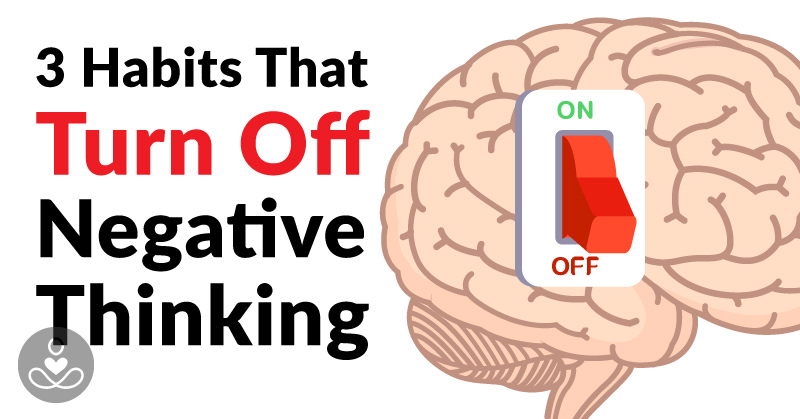How many times have you experienced failure or rejection, and no matter what you do, you can’t seem to get that negative experience out of your head? Maybe you are rejected by a potential friend, and despite having ten other close friends who love and support you, that person’s rejection makes you feel crummy and unlovable. Or maybe you didn’t get a job even though you met all qualifications and interviewed well. Even after getting another, potentially even better job, that rejection still stings and sits in the back of your mind.
As humans, we tend to dwell on negatives, letting them bring us down and define who are and how we feel about ourselves. We can have plenty more successes, but they can’t seem to out-weigh that one “failure”. What we need to do, according to social psychologist Alison Ledgerwood, is start looking at everything with a more positive frame of mind. This is how she proposes you achieve this sunnier outlook on life’s ups and downs.
The Power of Positive Thinking
In her talk, Alison goes through several studies that show when you frame situations in a more positive light, or as a gain rather than a loss, it makes people feel better or like a situation more than when you frame the same situation in a negative light. This is nothing new; we are all familiar with the “glass half full versus glass half empty” outlook.
What was studied further, however, was how easy it is to change someone’s opinion on a negative or positive topic. What researchers found was that if you frame something in a positive light first, then switch to negative, we very quickly go from approving to disapproving. What’s more, if you begin with the negative outlook first, then try and show people the positive side, they will still maintain their negative point of view.
We Have to Work Harder to Change Our Minds to Think Positively

Alison states that in order to see the up side of things or the silver lining on each new problem, you have to actively work hard to combat our natural tendency to focus on the negative. While this may seem impossible, especially when you are going through tough times, she maintains that you can practice this and train your mind to start to naturally focus on the positives. It just takes time and effort.
There are several things you can do to increase your happiness and make positive thoughts you auto-pilot response to any given situation:
Write for a few minutes each day about the things in your life you are grateful for.
Write about how thankful you are for your best friend, how lucky you feel to have a teenage son who actually calls you on a regular basis, or even something simple like your favorite cereal is on sale at the grocery store this week. This will help you focus on all the little positives that can so often get overshadowed by the negatives that always seem bigger and worse than they probably are.
Rehearse good news and share it with others.
While talking through your problems with a friend or loved one is a healthy, important thing that you can do, it can quickly become toxic if you dwell on the subject for too long. If every conversation you have with your best friend or spouse involves you venting and going on about your horrible boss, how much you dislike your job, or how much you just hate having to go to the gym each day, this puts negativity at the forefront of your mind (and theirs).Instead, talk about the good things that happened to you. This simple act of telling others about your fun weekend, the funny thing your coworker said at lunch, or how your coffee was extra rich that morning will make you feel happier and train your brain to start focusing on the positives in your life.
Be more aware of how we act and react in our communities.
Think of how one cruel or insensitive comment sticks with you and makes you feel terrible. Why would you do that to someone else? Instead of snapping back at someone when they snap at you, respond in a forgiving manner. This simple act of trying to understand where someone is coming from (maybe they are having a terrible day themselves) and responding with love and kindness will not only help you to maintain a more positive mindset throughout your day, but it may just help that other person feel better, too.
Alison reminds us that this is no easy task, and that re-training our minds to look at life with a “glass half full” approach takes time and effort. The more we replace negative thoughts and actions with positive ones, however, the happier and healthier we will be. Join us in making our lives and the lives of those around us more positive and uplifting and start re-training your brain today.
Share this article with your friends and loved ones so they, too, can start thinking and spreading positivity to those around them and end the cycle of negative thinking!

